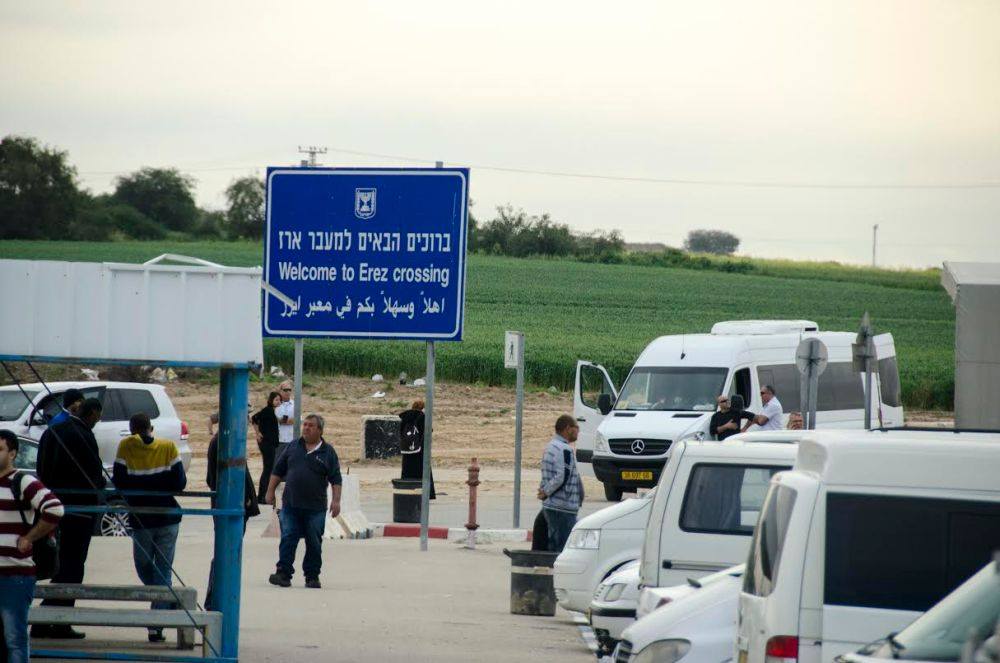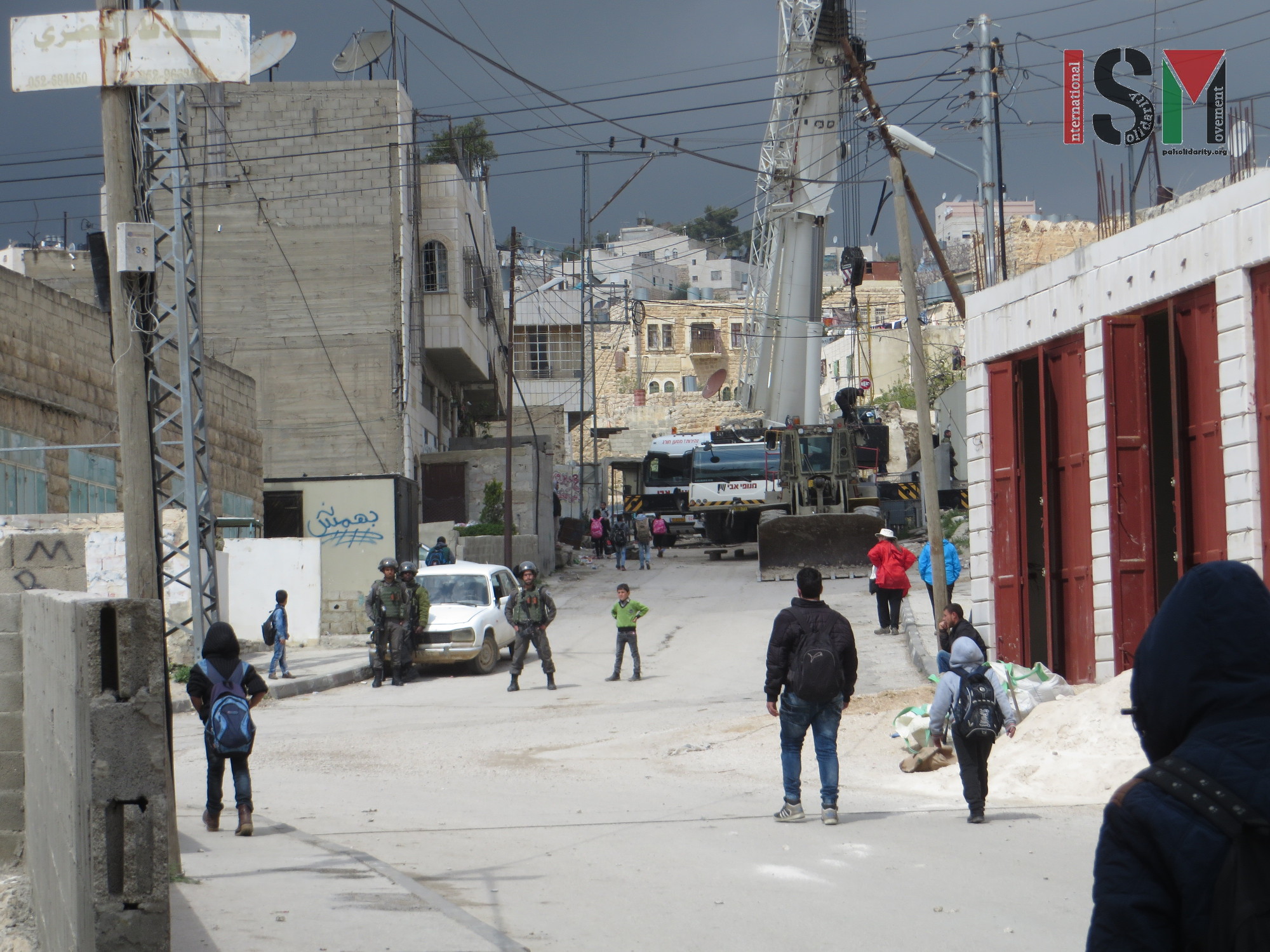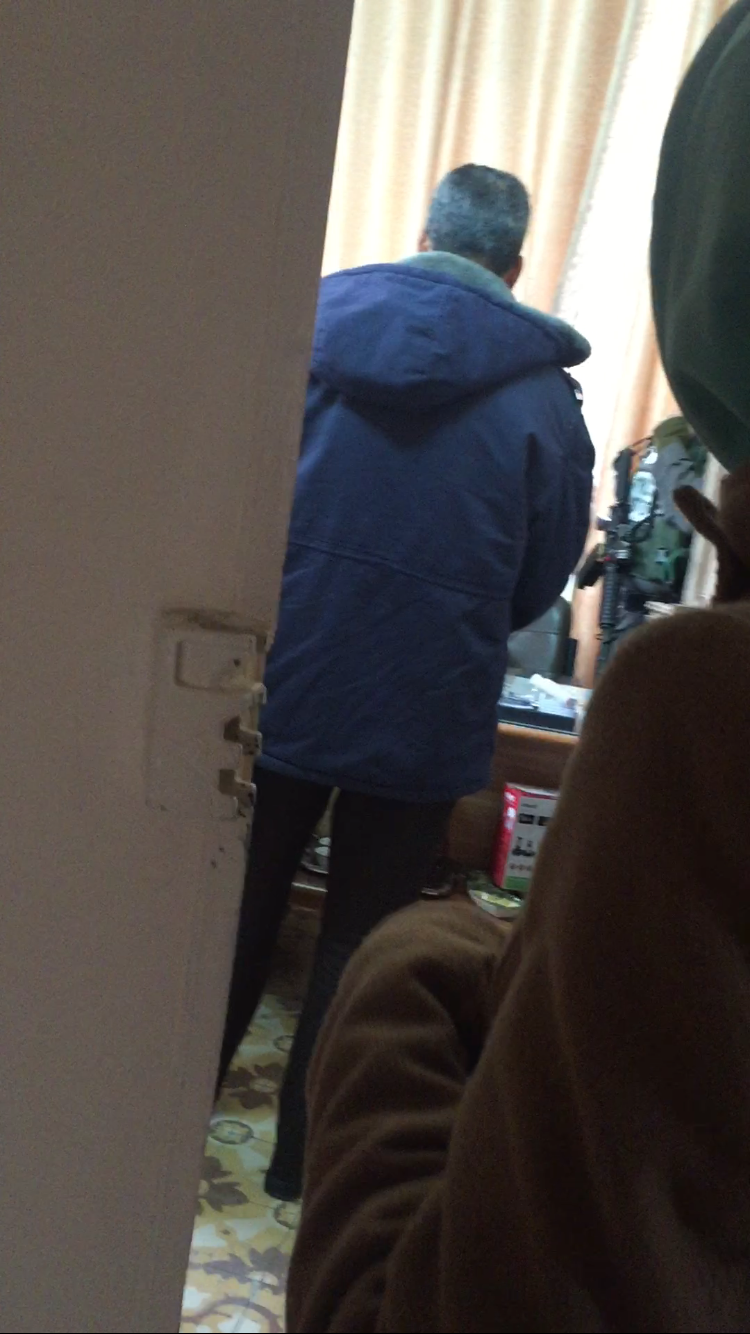Tag: Denial of Entry
-
Apartheid restrictions against Palestinians
23rd March 2016 | International Solidarity Movement, al-Khalil team | Hebron, occupied West Bank The Israeli government has announced that as of Wednesday the 23rd of March, until Sunday the 27th of March, all roads leading into or out of the occupied Palestinian territories, be it either the West Bank or Gaza will be completely…
-
Schoolboys stopped from walking home as Israeli forces expand checkpoint
22 March 2016 | International Solidarity Movement, al-Khalil team | Hebron, occupied Palestine On 21st March 2016, Israeli forces at Salaymeh checkpoint in occupied al-Khalil (Hebron) stopped Palestinian schoolboys on their way home, preventing them from passing through the checkpoint. Around noon, as a cluster of schools near the Salaymeh checkpoint finished classes for the…
-
Israeli Forces push their way into girls school
21st March 2016 | International Solidarity Movement, al-Khalil team | Hebron, occupied Palestine On Sunday, 20th March 2016, Israeli forces raided the al-Faihaa girls school in occupied al-Khalil (Hebron), using the staff in the school as human shields. In the morning, three heavily-armed soldiers in full combat gear entered the premises of the school when…



